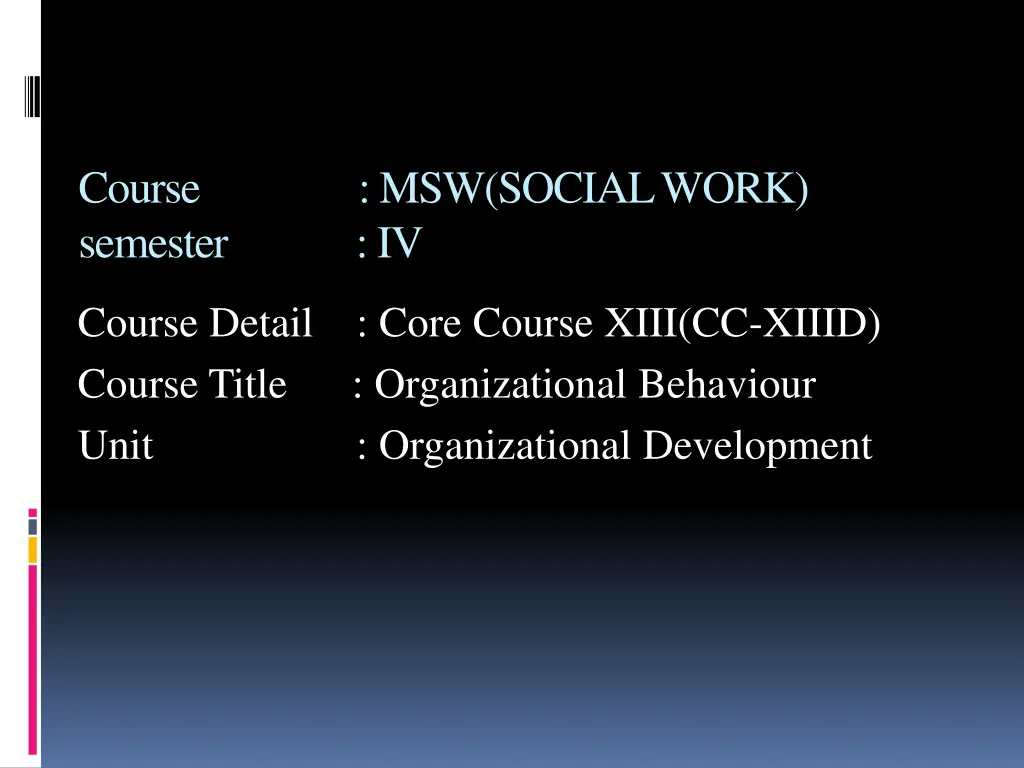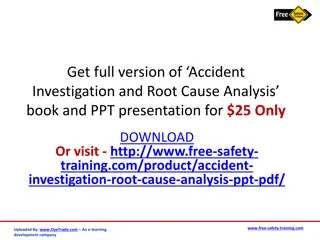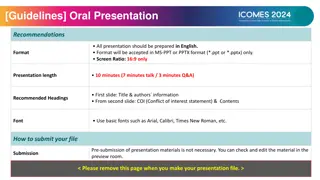
Organizational Development Overview
Explore the concept, definition, characteristics, objectives, process, and interventions of organizational development in this comprehensive guide. Learn how this strategy focuses on planned changes to enhance organizational culture and effectiveness.
Uploaded on | 0 Views
Download Presentation

Please find below an Image/Link to download the presentation.
The content on the website is provided AS IS for your information and personal use only. It may not be sold, licensed, or shared on other websites without obtaining consent from the author. If you encounter any issues during the download, it is possible that the publisher has removed the file from their server.
You are allowed to download the files provided on this website for personal or commercial use, subject to the condition that they are used lawfully. All files are the property of their respective owners.
The content on the website is provided AS IS for your information and personal use only. It may not be sold, licensed, or shared on other websites without obtaining consent from the author.
E N D
Presentation Transcript
Course : MSW(SOCIAL WORK) semester : IV Course Detail Course Title Unit : Core Course XIII(CC-XIIID) : Organizational Behaviour : Organizational Development
Concept Of Organizational Development In the works of kaith davis, organizational development is an intervention strategy that uses group process to fous on the whole culture of an organizational in order to bring about a planned change
Definition of organizational development According to burke is organizational planned process if change in an organization s culture through utilis the behaviour science technology, research theory development a
Characteristics Of Organizational Development Focus On The Whole Organization Systems Organization Use Of Change Agent Problem Solving Strategy Experiential Learning Group Process Feed Back (a)Contingency Orientation(b) Team Built
Objectives Of Organizational Development a) To improve the organization s capacity to handle its internal and external functioning and relationships b) To improve interpersonal and group processes. c) To improve more effective communication. d) To ensure ability to cope with organizational problems of all kinds
Process of organizational development A typical complete OD progarmme includes the following steps which are presented inbriof in the following lines; a) Initial diagnosis b) Data collection c) Data feedback and confrontation d) Action planning and problem solving e) Team building f) Intergroup development g) Evaluation and follow-up
Interventions Of Organizational Development OD interventions can be classified in to two broad categories which are, a) Structural techniques b) Human process techniques STRUCTURAL TECHNIQUES a) Centralization b) Decentralization c) Widening Of Span Of Contral d) Job Redesign e) Job Enlargement
f) Job Enrichment g) Integrated Work Teams h) Quality Circles i) Compressive Work Week Human process techniques 1. Sensitivity Training 2. Survey Feedback 3. Process Consultation 4. Team Building 5. Inter Group Development
Quality circles a) One of the most widely practiced applications of problem solving teams b) These are work teams of 8 to 10 employees and supervisors who have a shared area of responsibility c) These work teams are meet regularly to discuss their quality problems, investigate cause of the problems, recommend solutions and take corrective actions
Organizational change Environmental forces that are requiring managers to implement comprehensive change programmes. There are two views on change; a) Why people and organizations often resist change b) How this resistance can be over come?
Causes for organizational change I-external Forces For Change a) The Competitive Market Place b) Changes In Technology c) Changes In Physical,social,political And Economic Environment. Ii-internal Forces For Change a) Change In Tool, Machines And Equipments b) Change In Methods And Procedures c) Change In Managerial Personnel d) Change In Formal Organization Structure e) Change In Informal Organization
Process of organizational change According to kurt lewin, the following three stages in initiating and establishing any change in the organizations which are; a) Unfreezing If is process of preparation for change through disconfirmation of the old practices, Attitudes and behaviours b) Changing or moving The planned change is initiated and carried out c) Refreezing This phase ensures that the planned change introduced is working satisfactorily.






















